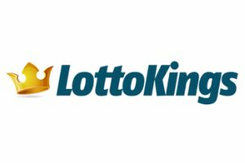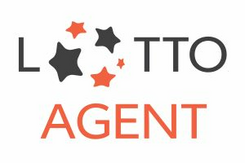The Chung Family: How to Steal a Lotto Super 7 Jackpot
Lottery winners all over the world have experienced great luck without having to scam their way into a win. Unfortunately, this doesn’t always give the rest of us hope that we could win on our own. The Chung family of scammers are a perfect example of this, because instead of waiting for their own win, the family stole a Lotto Super 7 win from somebody else.
The Stolen Ticket

The other ticket was purposely kept behind the counter when Jun-Chul Chung realised that he was holding a winning ticket worth $12.5 million. At the time, the possibility of getting his hands on millions definitely erased any fear of repercussions. He may have stolen Campbell’s ticket, but it wouldn’t matter soon enough; he was certain the millions would somehow make him untouchable.
When Jun-Chul Chung sent his daughter, Kathleen Chung, to claim the $12.5 million in February 2004, the Ontario Lottery and Gambling Corporation (OLG) had plenty of questions. Though Kathleen initially denied any relation to Kenneth Chung, she eventually admitted that her brother managed a variety store when lottery officials became suspicious. She also claimed that she couldn’t remember where she purchased her winning ticket, specifically because she was on the job in St. Catharines and must have made the purchase on a whim. Her story was inconsistent and worrisome, but that didn’t matter—the OLG still paid out the winnings in December 2004, several months after she made her claim.
How Did the Chung Family Spend the Winnings?
After receiving payment, Kathleen promptly sent most of the millions to a relative in Seoul, presumably to take care of their family in Korea. The remaining amount was used to create a life of luxury for the Chungs. The family purchased two mansions, one in Oakville and the other in Thornville, as well as several expensive vehicles. Despite the fact that they’d stolen the money, they weren’t at all afraid to show off their newfound wealth. They spent years living lavishly and comfortably, woefully unaware of the repercussions that would follow.
Guilty as Charged

In 2010, Ontario Provincial Police brought fraudulent charges against Kenneth, Kathleen, and Jun-Chul Chung. The following year, in an effort to rectify the situation, the OLG tracked down Daniel Campbell and finally paid out the winnings he was owed. In total, he received $14.85 million, which accounted for the original winning amount plus interest.
Several years later, in 2018, the "lottery winners" were finally convicted. Though Kenneth Chung initially received a 10-month prison sentence, he was eventually acquitted of all charges after the judge on the case determined there was no solid proof of his involvement.
Kathleen and Jun-Chul, however, weren’t quite as lucky, as their involvement was undeniable. Kathleen was sentenced to four years in prison, while Jun-Chul received a seven-year prison sentence, though they would both be out on bail not long after. Because the Crown was only able to recover $8 million from their estate, the father and daughter were also fined $4.6 million to cover the difference of the payout.
Conclusion
Though the Chung family’s scams were widely publicised, they certainly aren’t the only ones guilty of taking home fraudulent winnings. Nick Perry’s lottery scandal is one of the most notorious scams of all time, as he and his accomplices rigged the lottery in their favour as an inside job. Similarly, Eddie Tipton, the former information security director of the American Multi-State Lottery Association (MUSL), rigged a popular lottery’s random number generator and won himself $14.3 million.
While it’s true that winning a jackpot would be a dream come true, such dreams must come naturally and with luck—otherwise, things can certainly turn out to be a real nightmare for people who try to cheat the lottery.






